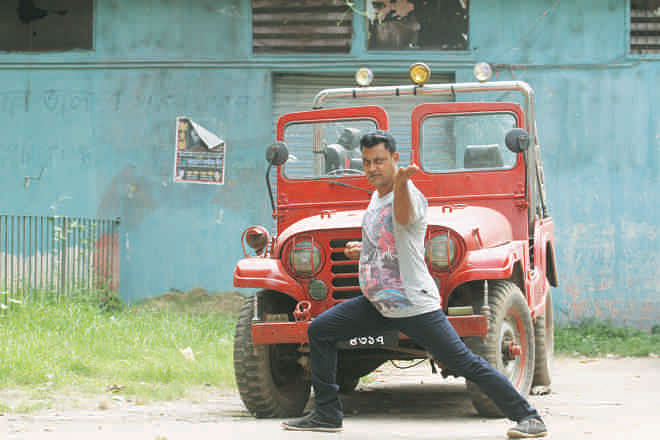MAILBOX
MAILBOX

Happily Ever After?
I want to congratulate the writer for such an engaging and enjoyable cover story. Through his writing style, the junior artistes who always remain nameless become alive. The life stories of Muhammad Sulaiman, Rowshanara, Ripon Shikder and Nasir are intriguing. These people are in the film industry because they love being in films. So it's more of a passion for them rather than a profession. Most of them live in poverty. Wouldn't it be nice to pay them a little better so that they can continue to contribute to cinema without worrying about money?
Solaiman Ali
Brooklyn, NY
On Email
***
I was horrified to learn that the 'extras' of Bangladeshi film industry carry out most of the stunts without any protective gear. How someone can be allowed to jump from a three-storied building without any protection is beyond me. The directors and producers should be charged with manslaughter.
Mona Chowdhury
Banani, Dhaka
***
While I enjoyed reading the entire story, the character of Muhammad Sulaiman struck me as particularly striking. The octogenarian looks a like an artiste who has cinema in his blood. I was deeply moved by his love for cinema and struggle to be a part of it. Something tells me he is capable of being just a 'junior artist'—he has potential to be a great actor. I sincerely hope that someone will take notice of the well written cover story and give this gentleman a break he has been waiting for all his life.
Enamul Kabir
Dhanmondi, Dhaka
How does a football swerve?
I am a football fan and I have always wondered how footballs swerve. The technique emerged first in the South American game. In the early 1950s a young Brazilian midfielder nicknamed Didi invented the swerving free kick. He realised that a ball kicked with spin would deflect significantly in flight. The leather ball of that era was prone to water absorption and the weight increase made it much less responsive to the aerodynamic forces caused by the spin. This was seldom a problem in the warm, dry conditions of Brazil but a serious drawback in Europe's winter game. Not until a ball with a synthetic, impermeable surface was introduced in the 1960s could the technique catch on. European players then became as adept as their Brazilian masters. That's the history part of it. And the science of the swerving football was disclosed by this week's Quirky Science. Thanks a lot!
Zakaria Mintu
Motijheel, Dhaka

Early Morning Adventure
I have been walking in the morning around Dhanmondi Lake for the last 30 years of my life. It has become a routine for me over the years. However, over the years, I have forgotten that a walk can be a lot of fun if one has a mind as inquisitive and observant as that of the writer. The article motivated me to look at the persons I see regularly with a different lens and take interest in their lives. I rediscovered that sometimes all it takes to befriend someone is a smile.
Sohel Khan
Mohammadpur, Dhaka
Elif Şafak
This has reference to the article Algebra of Love (September 12, 2014) on Turkish author Elif Şafak whose novels are truly international and diverse in character. Her upbringing has a lot to do with it. Born in France, she has lived across Europe and America and now divides her time between Istanbul and London. Her novel The Bastard of Istanbul was long-listed for the Orange Prize. Her retelling of the life of the 13th-century poet Rumi folded into the life of a bored Jewish-American housewife, in The Forty Rules of Love is simply magical. And last year she published Honour, the story of an "honour" killing by a Turkish Kurdish family living between their home country and the UK. Şafak's writing may not be high literature in the Nobel Prize-winning Orhan Pamuk league—her prose is simple, the pages turn easily, plots sometimes twist too conveniently. But Şafak has big ideas about women's rights, identity, freedom of expression—that really challenge readers, and her novels work hard at bringing out unheard voices. It was nice of the Star to introduce this great writer to the Bangladeshi audience.
Eva Rehman
Uttara, Dhaka
Betterment of Transport
Nowadays Rail Service is one of the fastest ways to travel in Dhaka. It takes approximately half an hour by train from airport station to Kamlapur whereas, if the same distance is travelled by bus, it will take at least one and a half hours. This is a major concern for the regular commuters of this route. If the Railway department decreases the fare and increases the number of train during pick hours (7am-9am and 5:30pm-7pm), it will reduce pressure on the existing traffic congestion of the city.
S Amir Haque
IUB, Baridhara, Dhaka